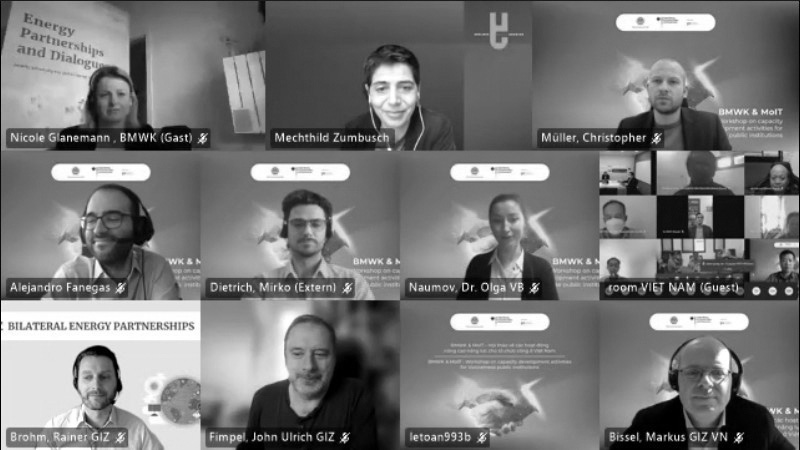Country’s energy efficiency on agenda at workshop
 |
| Country’s energy efficiency on agenda at workshop |
On February 25 the event, on capacity development activities for Vietnamese public institutions with duties and functions in energy efficiency (EE) saw the participation of nearly 100 representatives from public institutions as well as reps from power companies under Electricity of Vietnam. The workshop was chaired by Trinh Quoc Vu, deputy director general of the Department of Energy Efficiency and Sustainable Development and also involved were Nicole Glanemann, representative of the German Ministry for Economic Affairs and Climate Action, and Markus Bissel, head of EE at the 4E Project, implemented by the German Development Cooperation Agency GIZ.
Participants listened to an overview report on the system of public institutions with functions and duties on EE covering all provinces. The result of a survey on the current capacity of institutions was also presented, showing that while most centres have departments and staff in charge of EE, facilities and specialised measuring equipment for related activities are still limited in terms of quantity and type. A lack of trained energy auditors was also noted in the survey.
The budget for EE activities deployed at such centres comes mostly from state capital or is sponsored, and revenues from consulting activities for enterprises account for only a low proportion.
At provincial power companies, the implementation of EE activities also faces many difficulties.
Officials work concurrently to monitor EE with narrow experience in the field, which affects their work quality. Despite several activities in many forms to encourage the saving of electricity among the community, many electricity consumers have not changed their usage habits.
According to Michael Geißler, CEO of the Berlin Energy Agency, to successfully execute EE activities it is necessary for organisations and enterprises to have a reliable legal framework for implementation, standardised procedures and contract processes, as well as potential mediators to manage and handle conflict situations.
Based on the survey results and while considering the tasks, budget, and industrial development characteristics of each locality, the delegates discussed and exchanged ideas to build an appropriate and feasible capacity development programme in Vietnam.
The activities were proposed for implementation under the model of bilateral cooperation between both Vietnamese and German institutions in order to exchange relevant experience and offer useful support at the right time.
What the stars mean:
★ Poor ★ ★ Promising ★★★ Good ★★★★ Very good ★★★★★ Exceptional
Related Contents
Latest News
More News
- Trung Nam-Sideros River consortium wins bid for LNG venture (January 30, 2026 | 11:16)
- Vietnam moves towards market-based fuel management with E10 rollout (January 30, 2026 | 11:10)
- Envision Energy, REE Group partner on 128MW wind projects (January 30, 2026 | 10:58)
- Vingroup consults on carbon credits for electric vehicle charging network (January 28, 2026 | 11:04)
- Bac Ai Pumped Storage Hydropower Plant to enter peak construction phase (January 27, 2026 | 08:00)
- ASEAN could scale up sustainable aviation fuel by 2050 (January 24, 2026 | 10:19)
- 64,000 hectares of sea allocated for offshore wind surveys (January 22, 2026 | 20:23)
- EVN secures financing for Quang Trach II LNG power plant (January 17, 2026 | 15:55)
- PC1 teams up with DENZAI on regional wind projects (January 16, 2026 | 21:18)
- Innovation and ESG practices drive green transition in the digital era (January 16, 2026 | 16:51)

 Tag:
Tag:



















 Mobile Version
Mobile Version